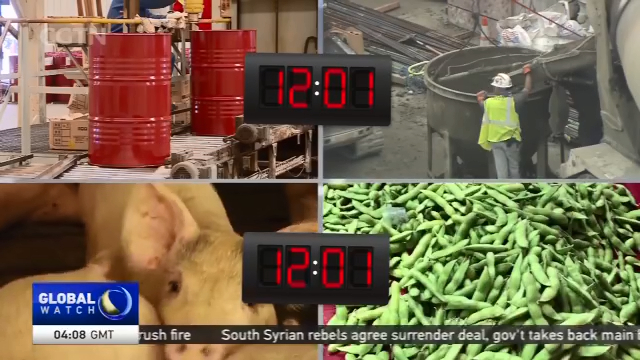
13:06, 07-Jul-2018
China-US Trade Tensions: Beijing retaliates with tariffs on $34 bln worth of US imported goods
Updated
12:08, 10-Jul-2018
02:14

China is calling this the beginning of the "biggest trade war in economic history". Friday began with the US and China matching each other's tariffs, dollar for dollar. US President Donald Trump says he's trying to convince Beijing to improve its protections for US intellectual property. CGTN White House Correspondent, Jessica Stone takes a look at who will pay the price.
Many U.S. goods on China's tariff list are agricultural-including pork, beef, soybeans and apples. Also hit-whiskey, tobacco, and off-road vehicles.
LI KEQIANG CHINESE PREMIER "Our view is, that trade war is never a solution. China would never start a trade war, but if any party resorts to an increase of tariffs, then China will take measures in response, to protect China's development interests, uphold the authority and efficacy of the WTO, and to save the multinational trade regime."
The U.S. Chamber of Commerce assembled this map to show how U.S. tariffs will hurt American businesses. In the state of Washington-$5.2 billion in products like soybeans, wheat and passenger vehicles. In Louisiana-$5.7 billion, most of it soybeans, but also corn, and grain sorghum. And in California-$4 billion in goods like electric vehicles and passenger cars.
JESSICA STONE WHITE HOUSE "These are people who voted for President Trump, is there a sense of betrayal."
DAVID SALMONSEN, SENIOR DIRECTOR AMERICAN FARM BUREAU FOUNDATION "I think there's a sense of concern." "Intellectual property forced Technology transfer that all this 34 billion is about those aren't agricultural issues. We are retaliated against to make a political impact. It's not about that these are the big issue is that agriculture has with China."
And these could be just the opening shots. US President Donald Trump has promised to retaliate against China's tariffs by slapping duties on an additional $400 billion worth of Chinese goods. The net result Many economists predict a loss of competitiveness abroad and a lot of pain at home.
MARY LOVELY PETERSON INSTITUTE OF INTERNATIONAL ECONOMICS "We will also have job losses inside the United States, because these are inputs in U.S. production. And, they will raise the cost of producing in the United States and some of those costs will have to be passed on to consumers."

SITEMAP
Copyright © 2018 CGTN. Beijing ICP prepared NO.16065310-3
Copyright © 2018 CGTN. Beijing ICP prepared NO.16065310-3